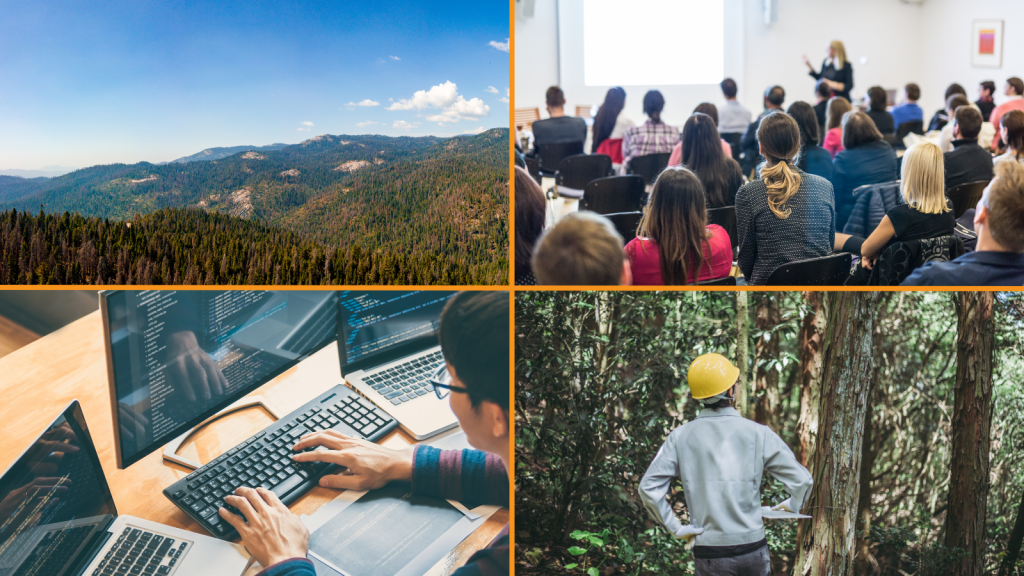PathFinder aims at understanding carbon fluxes in EU forests to guide EU policy making and implementation. This overall aim is articulated around four main objectives: (1) developing a composite forest monitoring method to (2) map forest carbon fluxes, and eventually design (3) future forest management scenarios and (4) pathway assessment system. These objectives, operationalised by 7 work packages, are eminently scientific. The consortium gathers cutting edge researchers and universities (a list of the project’s partners can be found here), providing a first indication on the ties between PathFinder and academia. The following explores the various research aspects of the project, and how the project relates to current and future research.
First and foremost, the project’s starting point is not only political (embedded in the Green Deal), but also scientific. To come up with the project, our researchers had to investigate literature on forest carbon fluxes, circular bioeconomy, forest management methods, and how science can contribute to politics and policy implementation. Taking stock of state-of-the-art pitfalls and shadow areas generated questions, incarnated in the different objectives of the project. Therefore, a comprehensive literature review led to PathFinder, designed as transdisciplinary and cutting edge, to develop a visionary scientific perspective on forest carbon fluxes.

Each of the project objectives requires and contributes to different aspects of science. The first one concerns data collection and processing. The first specificity of the project data-wise is that it collects field and remotely sensed qualitative and quantitative data. Remote sensing technologies will be developed. The quantity and quality of data and the way it is processed leads to the second specificity: this big data (from field and remotely sensed) will be aggregated, integrated and processed as such.
The second scientific aspect of the project is methodological. Throughout the work packages, several methods will be developed and tested. For instance, WP3 will co-design future forest scenarios using CLUMondo. In the overall project, stakeholders will be integrated into the process, to ensure the empirical relevance of the developments and the good integration of scientific knowledge to policy making and implementation.
The last scientific exploration of PathFinder is prospective. The outcomes of the project require a scientific and creative mind, to forecast models, scenarios, and pathways. For instance, one of the objectives of the project is to develop a mapping and estimation platform for LULUCF and biodiversity monitoring. Deriving co-designed forest scenarios and pathway assessment to guide policy implementation and forest management are at the core of the project. For example, WP4 will provide tools to integrate science into policy implementation.

From there, the project opens avenues for future research. The first suggestion is to adapt the current project and its outcomes to new circumstances. By the end of the project, the co-designed scenarios might require adjustments. In a context of galloping climate change, forecasts on forest management, forest structure and forest CO2 emission responses will need to be adapted to the evolving circumstances. Another avenue for research could integrate updates on remote sensing, that is an area which is progressing fast. Based on the findings of PathFinder, a second avenue for future research can be developed. For instance, data integration and aggregation techniques are always prone to improvements. Finally, the project could serve as a case study for researchers interested in the integration of scientific knowledge into policy making and implementation.


